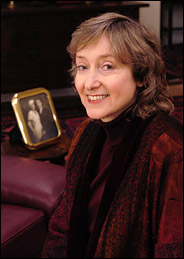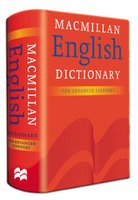Projektni pristop k poučevanju tujega jezika je svojevrsten izziv tako za učitelja kot za učence/dijake/študente, saj se morajo poleg vsebinskih problemov skupine soočati tudi s skupinsko dinamiko. Pisanje skupnega poročila povrhu vsega pa običajno predstavlja svojevrsten izziv tudi iz logističnega stališča. Seveda logistične rešitve je najlažje prepustiti študentom samim, vendar zakaj ne bi ubrali malce drugačno pot in jim ponudili sodobno rešitev, ki jim lahko pride v odraslem življenju še kako prav?
V mislih imam rešitve, ki jih ponuja sodobna tehnologija. Teh je več, težko je oceniti, katera je bolja morebiti tudi zato, ker sama vsebina poročil nalaga vedno drugačne zahteve. Danes bi vam rada predstavila rešitve, ki jih nudi
PB Wiki.
 PB Wiki
PB Wiki ponuja brezplačno storitev, ki temelji na programu, ki uporabnikom omogoča prosto ustvarjanje in urejanje spletnih strani s pomočjo spletnega brskalnika. Za
Wikipedio ste verjetno že slišali. Gre za spletno enciklopedijo, ki jo lahko piše in ureja besedilo prav vsak, ki se registrira. Pb Wiki uporablja podoben princip, le da vsebino lahko prilagodimo svojim specifičnim potrebam. Tako lahko odpremo wiki, ki bo namenjen za komuniciranje z javnostjo na kakšno specifično temo, lahko pa ustvarimo wiki, ki je dostopen samo izbranim očem, ki jim sami posredujemo vhodno geslo. Slednje je opcija za projektno pisanje naših študentov.

Kje pričeti? Gremo na spletno stran PB Wiki in, kot sami lahko vidite na sliki levo, napišemo ime wikija, ki bo njegov naslov, ter svoj e-naslov. Tako preprosto je.
Po e-pošti bomo prejeli potrdilo in povezavo do strani, kjer vpišemo še naslov, ki bo krasil naš wiki, ter geslo, ki ga bomo uporabljali pri vpisu. Slednje posredujemo še ostalim članom skupine.
Urejanje besedila je preprosto. (Morebiti je najbolj nazoren vodeni ogled, ki ga lahko najdete
tu. ) Kliknete na Uredi besedilo (Edit this page) in spreminjate besedilo po mili volji. Je pa res, da si za večjo nazornost lahko omislite tudi črke različnih velikosti, povezave, slike in podobno. Najbolje se je poigrati s temi možnostmi v peskovniku, ki ga najdete na prvi strani. Za sladokusce in bolj korajžne priporočam še ogled
Yummi, ki pokaže še več možnosti za urejanje besedil.
Nekateri naši študenti/dijaki/učenci bodo v hipu obvladali vse, našli bodo celo možnosti, za katere mi ne vemo. Drugi bodo rabili našo pomoč pri klikanju. Zato je dobro, če smo z njimi v računalniški učilnici, ko odpirajo te strani in ko se igrajo v peskovniku. Skupaj si lahko ogledamo tudi nastavitve (Settings), kjer lahko izberejo drugačen izgled za svojo stran, Files, kamor lahko nalagajo skupne dokumente in druga gradiva, ter Changes, kjer lahko spremljajo spremembe, ki so se zgodile in lahko vedno prevzamejo obliko ali vsebino prejšnjih rešitev. Dobro je tudi, da jih naučimo odpreti nove strani (kamelja pisava). Uvajanje v računalniški učilnici je nujno, če se želimo izogniti poznejšim težavam.
Morebiti še to: spodbujajte svoje učence/dijake/študente, da si svoj prispevek napišejo v drugem programu in ga shranijo na več mestih. In nazadnje, zapomnite si: počutiti se morate v tem okolju dovolj doma, preden peljete svoje študente v računalniško učilnico. Peskovnik vam ne sme uiti! Če bo pisanje v PB Wikiju smiselno dejanje za vas, bo verjetnost, da bo smisleno tudi za vaše študente, tako večja. Srečno!
 Teaching business English and looking for business podcasts? You may be interested to visit StreetIQ and check their 10,000 podcasts and pick one or two for your class.
Teaching business English and looking for business podcasts? You may be interested to visit StreetIQ and check their 10,000 podcasts and pick one or two for your class.













